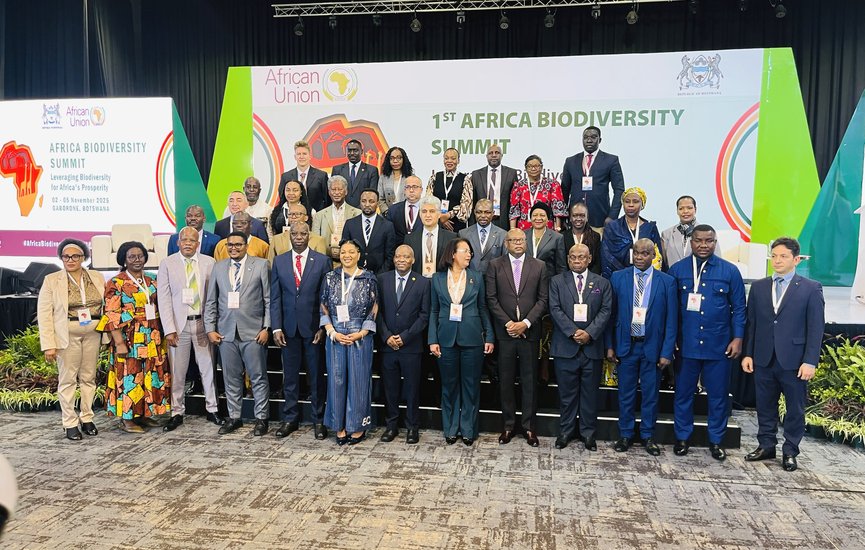A sense of urgency and hope filled the air in Gaborone as African leaders, scientists, and policymakers gathered for the inaugural Africa Biodiversity Summit, held from November 2–5, 2024. Convened under the theme “Leveraging Biodiversity for Africa’s Prosperity,” the summit marked a turning point in how the continent approaches conservation moving from dependence on foreign aid to building a self-financed, Africa-led strategy.
Hosted by Botswana’s President Duma Gideon Boko, the event brought together representatives from across the African Union to discuss how Africa can protect its rich ecosystems while achieving economic growth. President Boko urged that biodiversity must be treated as “the foundation of livelihoods, culture, and prosperity,” emphasizing that Africa must take ownership of its conservation agenda through local funding, innovation, and inclusive governance.
Delegates acknowledged that Africa’s ecosystems from the Congo Basin’s rainforests to the Okavango wetlands are under severe threat from what the United Nations calls the “triple planetary crisis”: biodiversity loss, climate change, and pollution. According to Leo Niskanen of the International Union for Conservation of Nature (IUCN), wildlife populations have declined by 76% since 1970, and over 2,300 species now face extinction. Yet, he said Africa still holds a quarter of the world’s biodiversity an immense opportunity if managed wisely.
A recurring theme throughout the summit was financing. The continent’s biodiversity funding gap stands at over US$100 billion annually. To address this, leaders endorsed the creation of an Africa Biodiversity Fund a continental mechanism to mobilize domestic and international financing for conservation. “We must redirect harmful subsidies into nature-friendly initiatives,” President Boko said, urging countries to allocate at least 1% of GDP toward biodiversity protection. AU officials echoed this call, stressing that “nature is not a competing need it is the backbone of our economies.”
Speakers also highlighted Africa’s need for unity in global biodiversity negotiations. Prof. Jon Hutton, a veteran conservationist, noted that Africa’s divided stances in forums like CITES and the Convention on Biological Diversity often weaken its influence. He called for a permanent AU biodiversity working group to ensure Africa speaks “with one voice” on global environmental policy. Dr. Andrew Seguya, from the Greater Virunga Transboundary Collaboration, added that regional cooperation models like those between Uganda, Rwanda, and DR Congo prove that joint action delivers results.
The summit also underscored that conservation begins at the grassroots. Amb. Selma Malika Haddadi, AU Deputy Chairperson, urged that local communities, women, and youth must be “co-managers, not just beneficiaries.” Projects like KAZA and Greater Virunga were hailed as examples where community-led models ensure both ecological and economic resilience.
The declaration adopted at the close of the summit redefined biodiversity as an economic asset. Member states committed to developing bio-economy strategies promoting sustainable tourism, bio-trade, and nature-based enterprises that create local value while preserving ecosystems. As AU Commissioner Moses Vilakati noted, “Biodiversity is part and parcel of our lives. Conservation spending is not a luxury it is an investment.”
The Africa Biodiversity Summit Declaration called for harmonized policies, ecosystem accounting, and inclusive governance. It reaffirmed Africa’s leadership in global conservation and pledged to invest in biodiversity as a driver of sustainable growth, resilience, and cultural identity. In the words of Angola’s President João Lourenço: “There can be no lasting development without balance between economic growth and the preservation of natural resources.”
And as Prof. Hutton reminded delegates with an African proverb:
“If you want to walk fast, walk alone. If you want to walk far, walk together.”
